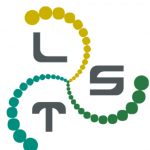BIOETHICS AND BIOLAW
The course in Bioethics and Biolaw imposes a type of study that takes into account very different components that range from pure ethics to philosophy, crossing practical ethics, medicine, law, to what is currently called Biolaw. It addresses:
1. Genetics. Recent developments in medical genetics will be explored from the perspective of genetic counselling and analysing the scientific, technical, ethical, and legal implications involved in applying this technology. Ethical and psychological issues will be considered in genetic counselling and in controversial clinical cases: the focus is on communication with the family, as well as on genetic testing, risk assessment and perception, and prenatal, predictive, and pre-symptomatic diagnostics. The main legal issues are (a) genetic privacy, concerned with protecting genetic data and identifying measures for ensuring such protection to an adequate degree, and (b) intellectual property, with a focus on the patentability of biotechnological inventions. In particular, students are required to understand International & European Regulation of Biotechnology.
2. Nanotechnology and nanomedicine. This is a technology in which molecule-sized medical devices are produced and used. We look at the benefits and risks, with a focus on the ethical and the legal issues involved. We considered the impact of nanotechnologies on diagnostic, therapeutic, and regenerative medicine, paying particular attention to the tools and strategies for risk management and analysis, and considering also the precautionary principles and the way these new technologies are perceived by society at large.
3. Environmental ethics. Ethics concerned with the environment, the human species, and relations among humans.
4. Internet, ethic and human rights. The first United Nations World Summit on the Information Society (WSIS), held in December 2003, recognized the connections between information technology and human rights with a Declaration of Principles. Critical issues are the digital divide, which produces a knowledge divide, a social divide, and an economic divide, freedoms to expression, right to privacy (see G. Sartor, Human Rights and the Future of the Information Society, Working Paper Series, EUI).

 LAST-JD
LAST-JD 










